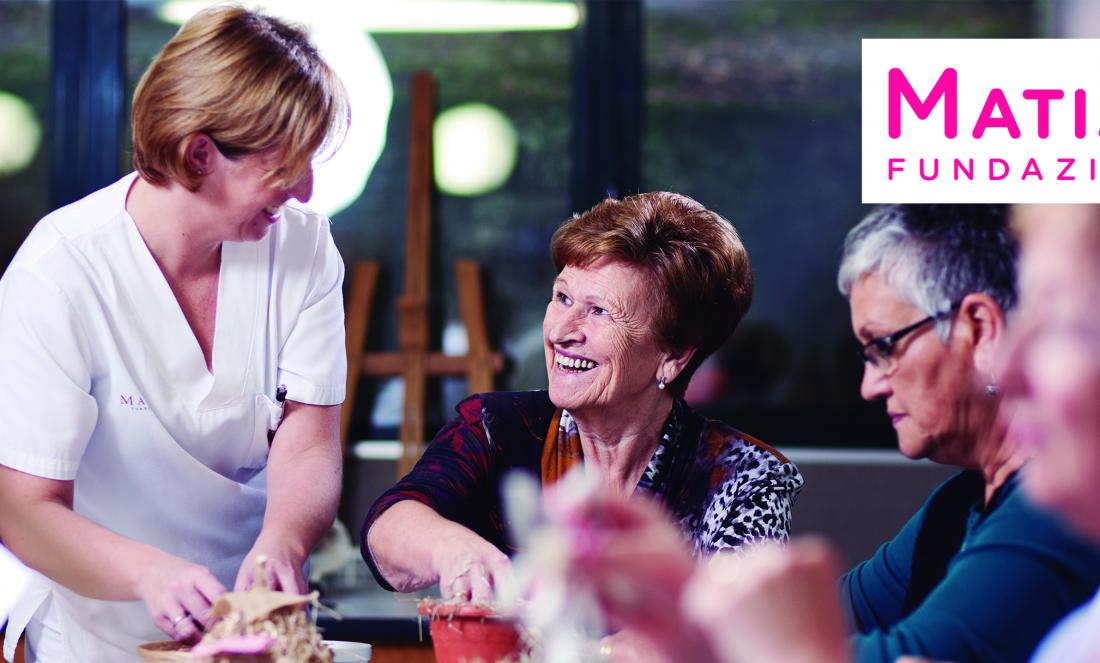
Improving attention! A cultural change from a team vision
It's hard to know where to begin to describe what my colleagues and I have experienced during these past two years at Rezola. We will start by saying that principles in any situation have never been easy and this time was not going to be an exception.
How to explain to a group of residents that suddenly their way of life in our centre was going to change. How to explain to them that we were going to try to work in a different way. At first it was very difficult for them to accept that from one day to the next we were going to set the table for them to eat, or put the washing machine on with their most delicate clothes, or go out and run errands...in other words, we wanted to try to get them to do the things they usually did at home before coming to the centre. We tried to transfer all these daily activities to our unit, starting all of us with a lot of enthusiasm and I think that they also lived it in the same way.
During the first six months everything was new: eating all together at the same table, going out to run errands, cooking, going out to a shopping centre, not wearing a uniform which in the end was not practical for us at times using street clothes and many other activities that I could name, and which have had very gratifying results both for the people who have participated in the project and for us.
Later we began to see that there were also other very important factors, such as sanitation, which perhaps we had not taken care of as much as we should have or which we were more afraid of deciding about. Perhaps having to make decisions that we had always taken to the nurse was complicated for us, which does not mean that the nurses did not support us, but rather that at some moments they had to stay more on the sidelines to assess the project.
We also commented that at times we felt a little pressure, as this model required us to carry out different tasks to those we had been carrying out until then and that on some occasions we found it difficult to carry out, feeling somewhat frustrated and with a sense of failure. But we have come back and learned how to handle these complicated situations.
Over time we have learned that there are more important things than putting in a dishwasher, or cooking, to make older people feel at home. Just talking to them, taking a walk or being with them when they need you, means giving them the attention you would give to your family member.
Today I can say that all the assistants who have participated in this project have learned to know them and we know many times without them telling us what is happening to them and that makes working with them much easier. Also the relationship that we have maintained between us has improved a lot, we have known each other much more because by always working together we have learned to respect everyone's opinions, although don't think that this has happened from one day to the next. We have had our ups and downs, but today if I had to participate in this project again I have no doubt that I would choose the same partners.
In short, I think it has been a positive, pleasant experience, in which we have learned a lot and above all in which we have taken better care of the people in our centre. It has been a real satisfaction to work in this way.
Centro Rezola Auxiliary Team
Matia Fundazioa

Add new comment